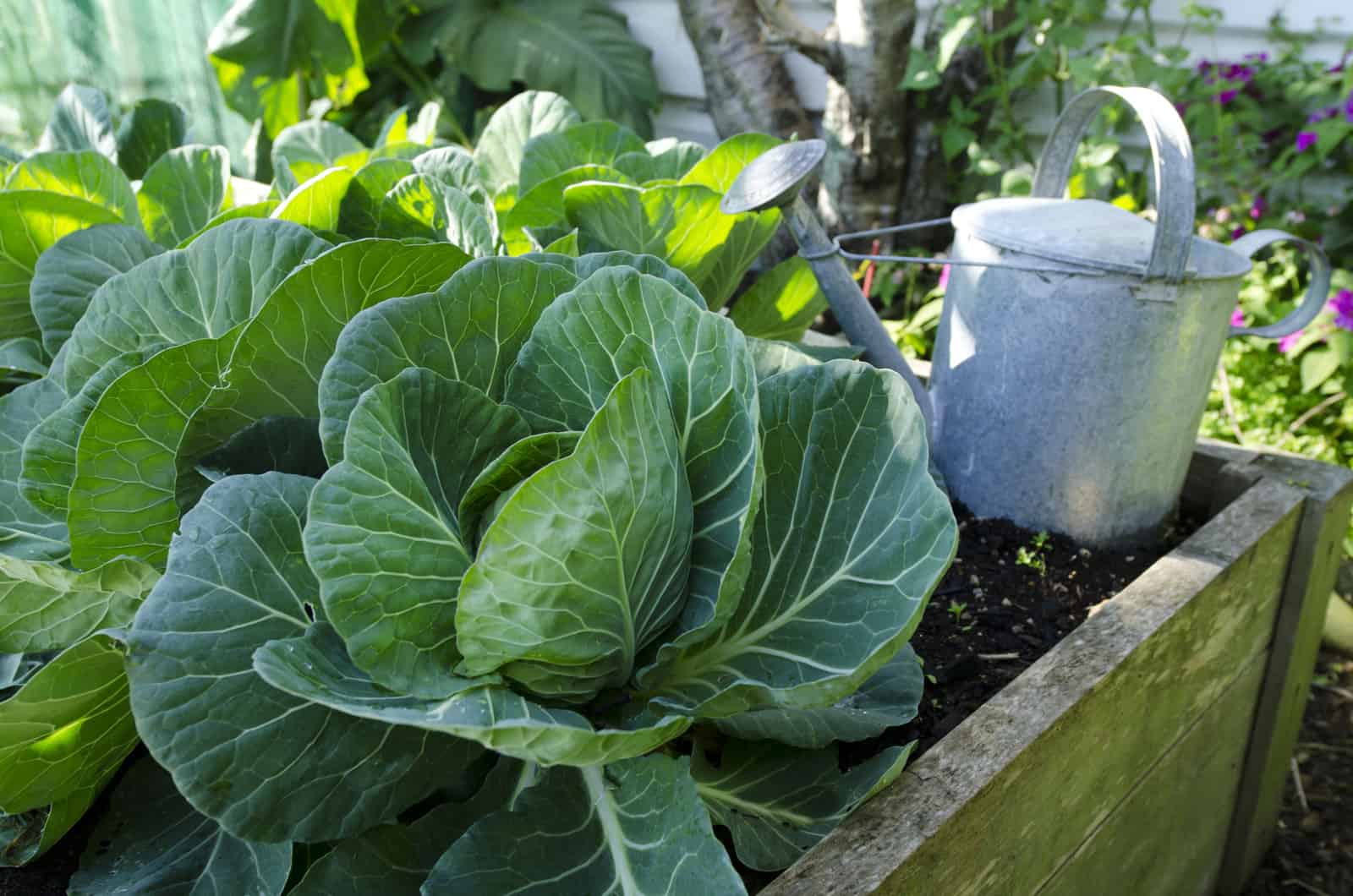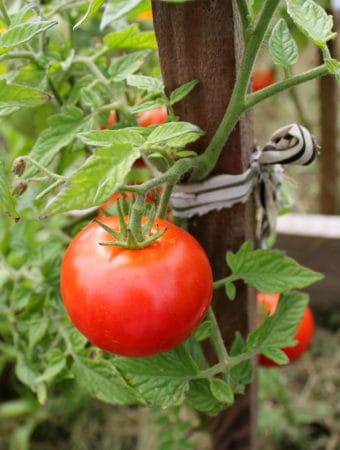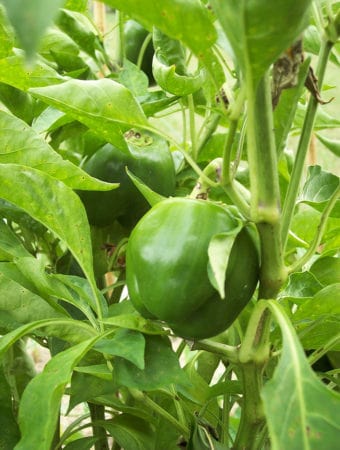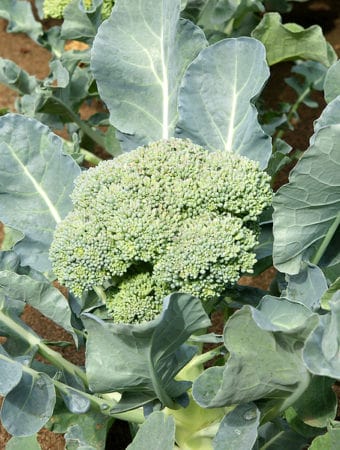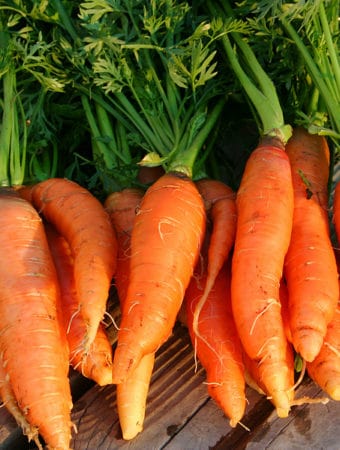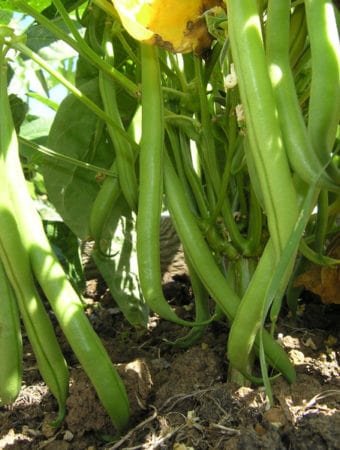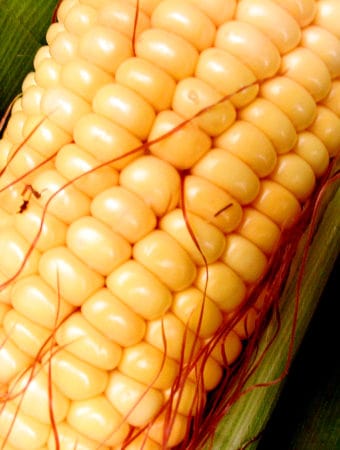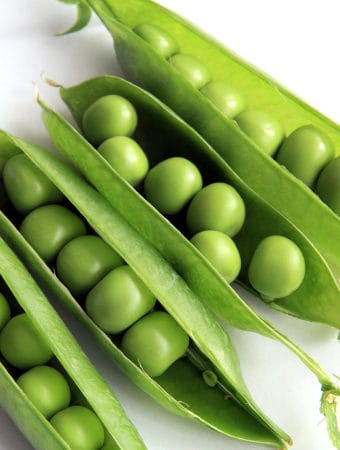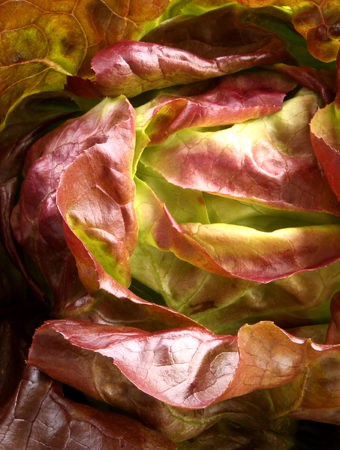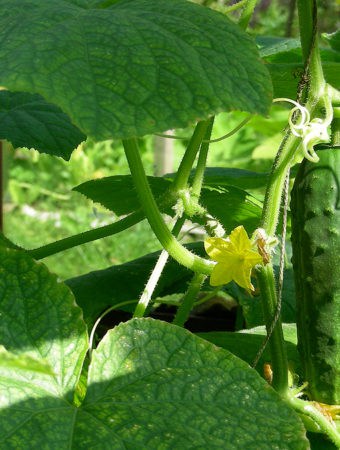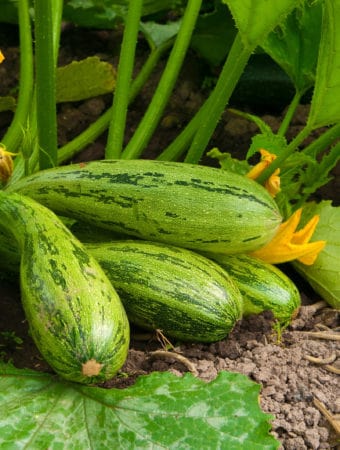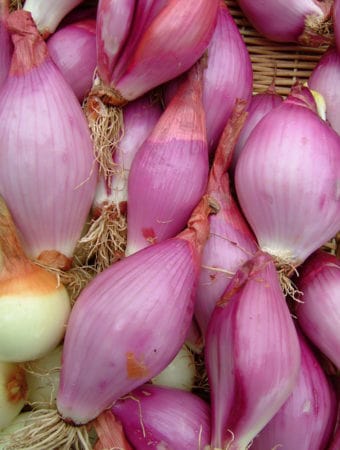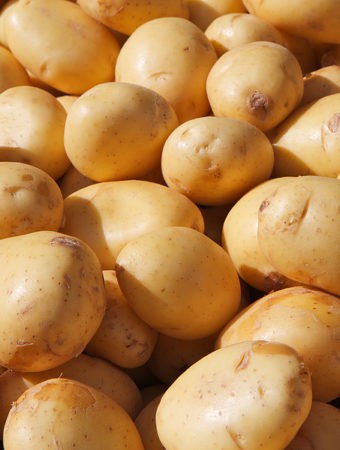Cabbage is a cool-weather crop. Grow cabbage in spring so that it comes to harvest before the summer heat or start cabbage in mid to late summer so that it comes to harvest during the cool days of autumn, winter, or early spring.
Cabbages will grow in most soils. They prefer short days and cool temperatures. Mature cabbages can withstand cold temperatures as low as 20°F. Seedlings and young plants can withstand a light frost.
There are many varieties of cabbage from the size of a softball to others that weigh as much as 50 pounds. Some are best eaten soon after harvest, others are well-suited for months of storage and winter eating. Plant a combination of early-, midseason-, and late-maturing cabbages. The “earlies” will give you your first harvest and can be eaten right away. The mid-seasons follow also for fresh eating. The “lates” are the slow growers and the best keepers for winter.
Related articles:
- Seven Ways to Cook and Serve Cabbage
- Cabbage Seed Starting Tips
- How to Plant and Grow Cabbage
- How to Harvest and Store Cabbage
- Cabbage Growing Problems Troubleshooting
- Imported Cabbage Worm Organic Pest Control
- Cabbage Looper Organic Pest Control
Cabbages are also colorful. Choose from pink, red, lavender, blue, purple, white, cream, or green. There are also tight or loose-head cabbages. Savoy is a looseleaf cabbage with crinkly textured leaves and is perhaps the most flavorful. It is hardy and probably the best cabbage variety for home gardens.
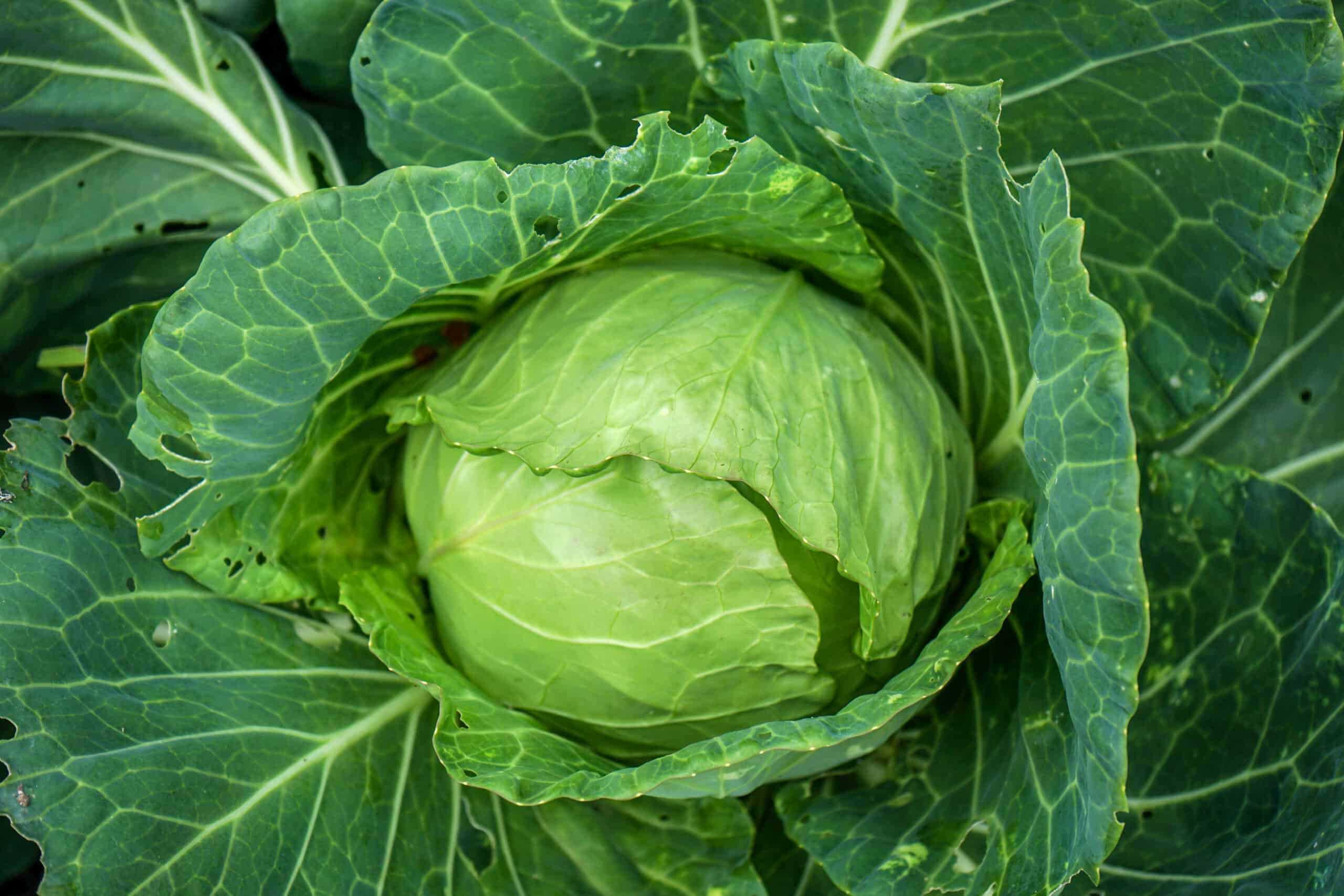
Cabbage matures best in cool weather. Sow cabbage in early spring for an early summer harvest. You can also sow cabbage in late summer for an autumn harvest. Cabbage matures in 70 to 120 days.
Green cabbage is an old-time favorite. Red cabbage is often found in salads and is excellent cooked and served as a hot vegetable. Savoy cabbage with its crinkly green leaves can be used just like green cabbage but is both more showy and tender.
The cabbage you use right after harvest is called new cabbage. Often cabbage is held in storage for winter use and is called old cabbage.
Good Products At Amazon For Growing Cabbage and Cabbage Family Crops:
- Neem Bliss 100% Cold Pressed Neem Oil
- Monterey BT Caterpillar Killer
- Safer Brand Insect Killing Soap
- PyGanic Botanical Insecticide
- Captain Jack’s Dead Bug Brew
- Live Ladybugs
- Natures Good Guys Beneficial Nematodes
- Yellow Sticky Traps
- Southern Ag Liquid Copper Fungicide
- MycoStop Biofungicide
Here is your complete guide to growing cabbage!
Cabbage growing quick tips
- Start seeds indoors 4 to 6 weeks before the last frost in spring.
- Place cabbage transplants in the garden when they are 3 to 4 inches (7-10cm) tall as early as 3 to 4 weeks before the last frost in spring.
- Direct sow seed outdoors when the soil can be worked in spring.
- In mild-winter regions, start seed in late summer for a winter or spring harvest.
Types of cabbage
- There are literally hundreds of different varieties of cabbage. There are many ways to group or classify the varieties of cabbage:
- One way to group cabbage is to classify them by harvest time–early season, mid-season, and late season. Early varieties are generally started indoors for a 2 to 3-week head start on the season; mid- and late-season varieties are generally direct seeded in the garden.
- Another way is to group cabbage varieties by whether they are best eaten fresh or if they are better stored.
- There are cabbages with smooth green leaves, others with red leaves, and others with green, crinkly leaves (called Savoy cabbage).
- Savoy cabbages have a higher iron content than smooth-leaved cabbage; they are hardy and make good winter and spring crops.
- Some cabbages are grouped as ornamental (even though their leaves are edible). These are sometimes called “flowering” cabbages; they have loose heads of ruffled leaves that are red, white, or pink, with an outside border of green leaves.
Where to grow cabbage
Cabbage grows best in full sun but will tolerate light shade for part of the day.
Grow cabbage in rich, well-drained soil. Cabbage will tolerate sandy and clay soils but it is best to add garden compost and well-aged manure to the planting bed. Cabbage prefers a soil pH between 6.5 and 7.5. Lime acidic soil to avoid the fungal disease called clubroot.
Cabbage prefers deep well drained loamy soil. Spring plantings do best in lighter, sandier soils. Autumn plantings do best in soil that contains more clay.
- Grow cabbage in loam soil rich in organic matter that is well-drained. Plant cabbage in full sun. Prepare the planting beds ahead of planting by covering beds with 2 to 3 inches (5-7cm) of aged compost or commercial organic planting mix and turning it under to 12 inches (30cm) deep.
- Cabbage grows best when the soil pH is between 6.5 and 6.8. The soil needs to be fertile and non-acidic. Complete a soil test before planting cabbage.
- If clubroot disease has been a problem, adjust the soil pH to 7.0 or slightly higher by adding lime.
- Add potassium-rich material such as greensand to the planting bed; also add phosphorus-rich material like phosphate rock.
- Add plenty of well-aged compost to planting beds before planting. In regions where the soil is sandy or where there is heavy rain, supplement the soil with nitrogen.
- Adding a moderate amount of nitrogen-rich blood meal or cottonseed meal to the soil ahead of planting will enhance leafy growth.
- Cabbage can be grown in sandy loam or heavy clay if watered correctly.
- Adequate moisture will allow cabbage to be grown in hot regions. Without adequate water in hot regions, cabbage will bolt–flower, and go to seed.
- Cabbage will grow in USDA Zones 1-10. They can withstand temperatures as low as 20°F. They grow best when days and short and temperatures are cool. In areas with hot summers and cool, but cold winters, grow cabbage as a winter crop.
Garden Planning Books at Amazon:
- Vegetable Garden Almanac & Planner
- Kitchen Garden Grower’s Guide Vegetable Encyclopedia
- Vegetable Garden Grower’s Guide
- Tomato Grower’s Answer Book
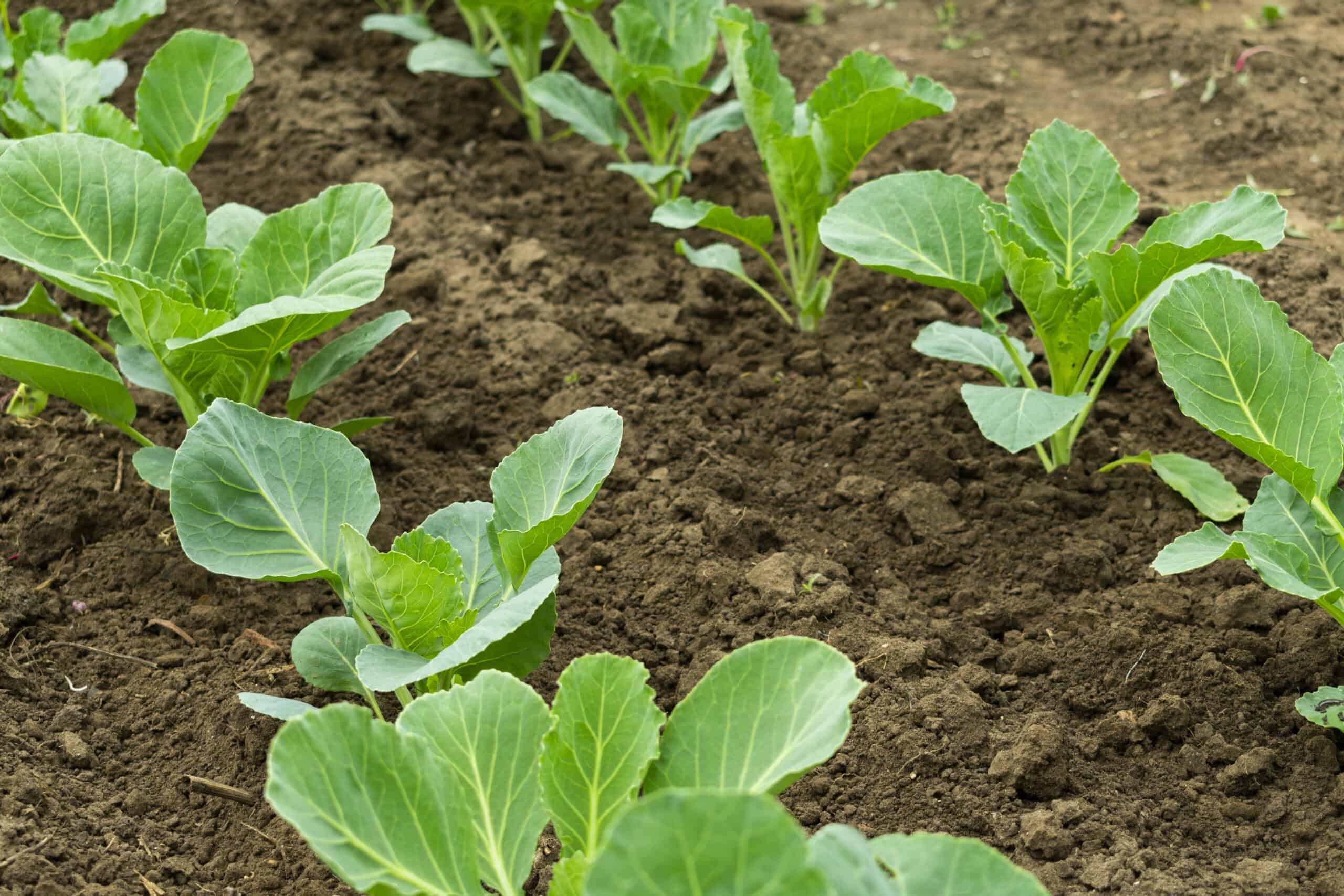
Cabbage planting time
Sow cabbage seed indoors 5 to 7 weeks before the last frost. Transplant seedlings to the garden when they are 4 to 6 inches (10-15 cm) tall. Direct sow cabbage in the garden between 4-6 weeks before the last expected frost and 2 to 3 weeks after the last frost. Use floating row covers to protect the start of early crops.
Cabbage is a cool-season crop that requires 70 to 120 days to reach harvest. Cabbage is best grown in temperatures between 25ºF and 80ºF (9º-27ºC), but is frost-hardy to temperatures as low as 20ºF. Cabbage grown in weather that is either too hot or too cold will bolt without forming a head. Weather that is too warm also can cause cabbage heads to split. Plant cabbage so that it is ready for harvest in cool weather.
● Spring planting cabbage. Sow cabbage seed 4 to 6 weeks before the average last frost date. Allow 60 to 90 growing days before temperatures rise consistently above 80ºF (27ºC). Cabbage planted in early spring will be ready for harvest in early summer. In cool regions, cabbage planted in mid-spring will be ready for harvest from mid-summer onwards.
● Autumn planting cabbage. Plant cabbage in mid to late summer for harvest in autumn or winter. Summer-planted cabbage must come to harvest in the cool weather of autumn or winter. In mild-winter regions, plant cabbage in autumn or winter for harvest in winter or spring. Cabbage started in mid-winter can be grown under a cloche for harvest in early spring.
● Succession cropping cabbage. To ensure a constant supply, sow seed and transplants every three or four weeks or sow the seed and set transplants at the same time for a successive harvest. Early and midseason cabbage varieties planted at the same time will mature several weeks apart.
- Cabbage grows best in regions where there is a long, cool growing season with temperatures between 45° and 75°F (7-24°C).
- Cabbage can tolerate frost and brief temperatures as low as 20°F (-6.70°C).
- Cabbage will bolt and go to seed in temperatures greater than 80°F (26°C).
- Early varieties are generally started indoors for a 2 to 3-week head start on the season; mid and late-season varieties are generally direct seeded in the garden.
- Sow midseason varieties directly in the garden on the frost-free date, and late-season varieties one month later.
- As a general guideline: in southern mild-winter regions, start cabbage indoors or in a cold frame in December and set plants in the garden in January; in northern cold-winter regions, start cabbage in hotbeds or indoors in February and set plants in the garden as soon as the soil can be worked. In northern regions, plant starts and seeds again in May or June and set them in the garden in July.
- Start seeds indoors as early as 6 to 8 weeks before the last frost in spring.
- Sow seed outdoors when the soil can be worked in spring. Transplants can go in the garden from 5 weeks before to 3 weeks after the last frost.
- Place transplants in the garden when they are 3 to 4 inches (7-10cm) tall as early as 3 to 4 weeks before the last frost in spring.
- Transplant seedlings that are 4 to 5 inches tall.
- For the best result transplanting cabbage, transplant after rain or soak the hole with water overnight before transplanting then water again after young plants are set in place. If the weather is sunny, give new transplants a few days of shade until they are acclimatized.
- In cool-summer regions, plant cabbage in late spring for a fall harvest.
- In mild-winter regions, start seed in late summer—about 6 to 8 weeks before the first frost–for a winter or spring harvest.
- Cabbage comes to harvest in 80 to 180 days from seed and in 60 to 105 days from transplants depending upon the variety.
- Unused cabbage seed is good for 5 years.
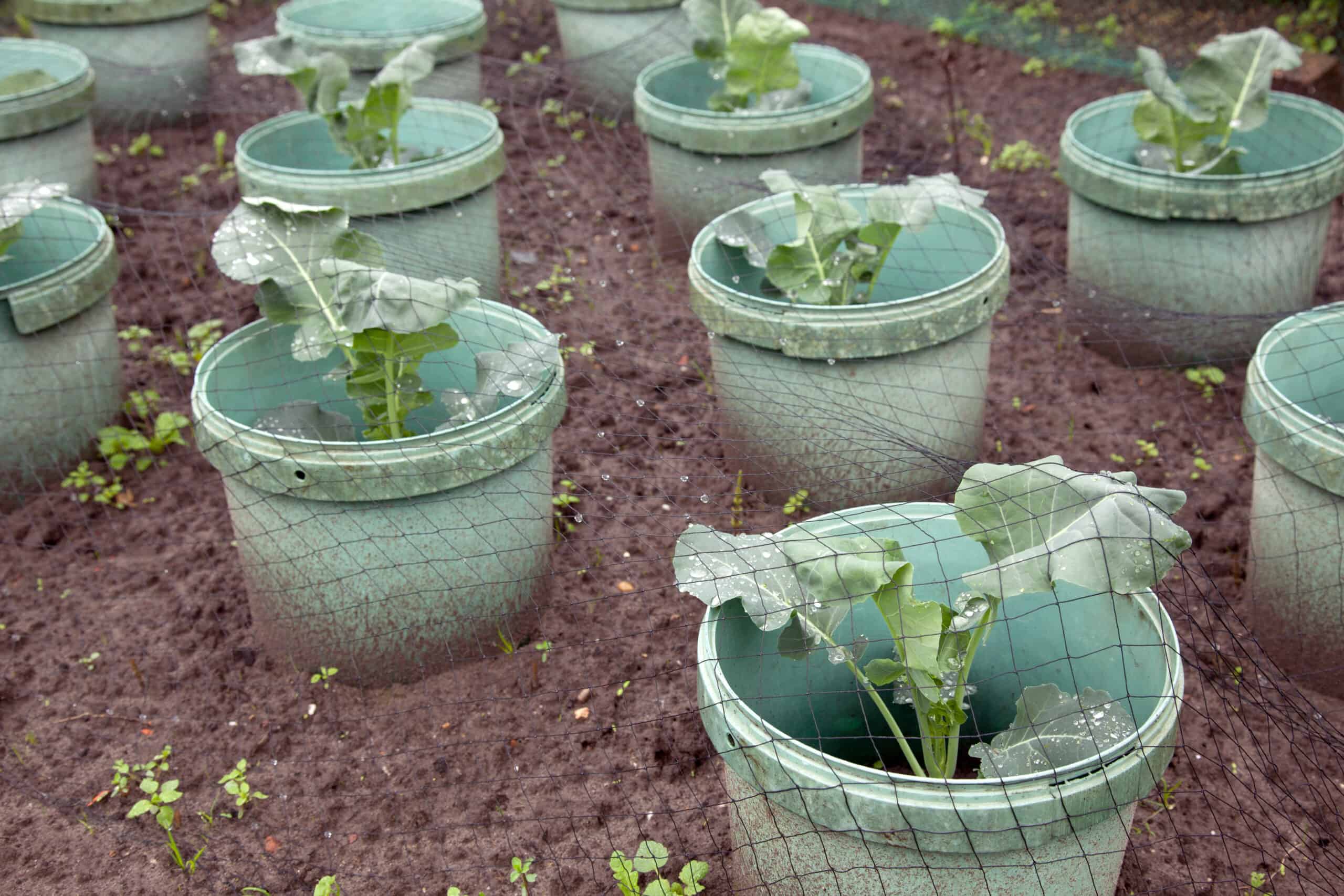
Planting spring cabbage
Spring cabbage—a near misnomer because spring cabbage is commonly planted in autumn—will suffer from a few of the pests and bolting that can plague cabbage planted in spring. Set out cabbage seedlings in autumn while the soil and air temperatures are still warm to start plants growing for harvest next spring.
Spring cabbage started in fall will establish roots and begin top growth before freezing weather arrives then sit nearly dormant during winter then complete its top growth in spring before temperatures grow too warm for cabbage growing.
- Plant spring cabbage in soil that has been cleared of summer crops then amended with well-rotted compost and manure. Plant seedlings—there is not enough time to start cabbage from seed in autumn—in raised beds or at the top of ridges 4 to 6 inches above beds—higher in damp, low-lying gardens.
- To grow spring cabbage as a tasty spring green—that is to harvest leaves cut-and-come-again, not for heading—sow seed close together instead of setting out starts, much like growing mesclun. You can do this next spring or now if you live in a warm-winter region.
- Sprinkle about 4 ounces of bone meal across every square yard of the planting bed and turn it under or add a dusting of bone meal to the bottom of each planting hole.
- Set out only seedlings that are strong with well-developed root systems. These plants will root into their new homes more quickly and begin growing without a struggle against cooling soil and air temperatures.
- Get spring cabbage in the garden at least 6 weeks before the first expected hard frost in fall—unless you plan to protect seedlings from freezing temperatures with a plastic tunnel or portable cold frame. Once plants are established you can protect them with spun-poly floating row covers or a mulch of straw or well-shredded dry leaves.
- Set plants with their bottom leaves at soil level, firming them in with the heel of your hand and then watering. Side-dress (side-water) cabbage with a liquid fish-kelp solution every two weeks after planting.
Where winter temperatures do not dip to freezing, grow to head cabbage through the winter just as you would if planting in early spring.
Cabbage planting and spacing
Sow cabbage seed ½ (1cm) inches deep spacing seed 3 inches (8 cm) apart. Thin seedlings at about 4 to 6 weeks when plants are big enough to lift by their true leaves (about 4 inches/10 cm tall with 5-6 leaves). Set seedlings 18 to 24 inches (60 cm) apart in wide beds or blocks. Space rows 24 to 36 inches apart. Transplants that are leggy or have crooked stems can be planted up to their first leaves.
- Sow cabbage seeds a ½ inch deep spaced 1 inch (2.5cm) apart; thin plants to 18 to 24 inches (45-61cm) apart–18 inches apart for earlies, 24 inches apart for lates.
- Cabbage seed is tiny; just 1 ounce of seeds will produce 1,500 to 3,000 plants.
- Transplant cabbage to the garden when plants are 4 to 6 weeks old with 4 to 5 true leaves. Set transplants in holes up to the bottom of the first pair of leaves, making sure the crown is not too close to the soil surface.
- Set leggy or crooked stemmed plants deeply; you can bury 1 to 2 inches (2.5-5cm) of the main stem even up to just below the top two sets of leaves.
- Space young seedlings 18 to 24 inches (45-61cm) apart in rows 24 to 36 inches (61-91cm) apart. You can space plants closer but the heads will be smaller at maturity.
- Space early varieties 14 inches apart; space mid-season varieties 16 inches apart; space late varieties 24 inches apart.
- In early spring plant cabbage through black plastic or garden fabric set in place to warm the soil. Cut an x in the fabric to set out transplants.
- Provide cutworm collars for seedlings and young cabbage plants.
- Plant succession crops every two weeks or plant seeds and transplants at the same time or plant early and midseason varieties at the same time so that they come to harvest at different times.
- Cabbage yield: Plant 4 to 8 cabbage plants for each household member.
More tips: Cabbage Seed Starting Tips.
Good Products at Amazon for Seed Starting Success:
- Jump Start Germination Station w/Heat Mat Tray, 72-Cell Pack, Dome
- Espoma Seed Starting Mix
- 200 Count- Jiffy 7 Peat Soil Seed Starting Plugs
- Seed Starter Kit with Humidity Dome (120 Cells Total Tray)
- AgrobriteT5 Fluorescent, 2-Foot, Grow Light System
Container growing cabbage
Cabbage can be grown in containers. A single head of cabbage can be grown in an 8-inch pot. Plant cabbages in larger containers on 12-inch centers.
- A cabbage will grow easily in a container at least 8 inches (20cm) deep and wide.
- In large containers grow cabbage on 12-inch (30cm)centers.
- Keep the soil evenly moist, do not let the soil go dry, and do not overwater.
- Feed cabbage growing in containers with compost tea or a dilute solution of fish emulsion every two weeks.
- Cabbage dislikes hot weather; move containers into the shade when the weather warms.
Watering cabbage
Cabbage requires heavy water from planting to head formation, and moderate water late in the season. Do not let cabbage wilt. Uneven water, such as heavy watering after a dry period, may cause stunted or cracked heads. Water at the base of plants and keep the soil moist, and mulch to keep the soil moist and cool. Cabbage requires consistent soil moisture during the growing season to help prevent heads from splitting. Watering can be reduced as heads near maturity.
- Cabbage requires regular, even watering. Uneven watering can result in stunted or cracked heads. Give cabbage 1 to 1½ inches of water every week; 1 inch equals 16 gallons (60.5 liters).
- As plants reach maturity, cut back on watering to avoid splitting heads.
- Always water at the base of the plant; avoid overhead watering which can spread disease.
Feeding cabbage
- Cabbage is a heavy feeder.
- Three weeks after planting side-dress cabbage with well-rotted manure, or apply manure tea every three weeks until harvest.
- Apply fish emulsion or compost tea three weeks after planting and then again every 3 to 4 weeks.
- Fertilize cabbage at midseason when plants are established with a high nitrogen fertilizer such as 10-5-5 or feed plants a dilute solution of fish emulsion every two weeks.
Companion plants for cabbage
- Grow cabbage with beets, lettuce, radishes, celery, fragrant herbs, onions, and potatoes.
- Interplant cabbage with beets and radishes and leafy lettuce; there will be ample room for these crops next to maturing cabbage.
- Cabbage can be grown alongside broccoli, kohlrabi, kale, cauliflower, and peas.
- Interplant cabbage with early crops in the garden.
- Avoid planting cabbage with pole beans, strawberries, and tomatoes.
- To deter insects, plant dill or thyme near cabbage.
See Garden Products Recommended by Harvest to Table
Caring for cabbage
- Mulch around cabbage—especially in warm weather—to preserve soil moisture and keep the soil cool in warm weather.
- Cabbage heads will split when they grow too fast and take up too much water.
- To prevent this damage, twist heads a quarter turn to separate some roots and interrupt water uptake a week in advance of harvest.
- If heads are small at harvest, add nitrogen to the soil next season and plant earlier.
- If cabbage suddenly starts to flower, this is caused by temperatures of 40 to 50°F for three or four weeks; this may happen to cabbages that are overwintered.
Red cabbage growing suggestions
- Cabbage is known for splitting before it matures. This may be a watering issue. Red cabbage is less likely to split than white cabbage.
- The cabbage is a hardy, cool-weather crop that takes from 95 to 140 days to mature. The cabbage prefers to finish its growth in cool weather, so plant cabbage in early spring or at the end of summer. A hint of frost will enhance the flavor of cabbage, but freezing weather will discolor the leaves.
- For spring planting choose varieties described as early or summer cabbage such as ‘Ruby Ball’. Early cabbages have fewer leaves than late or winter cabbages (cabbages form leaves from the inside out, so fuller heads take more time). Late cabbages (also called storage cabbages) are harvested from fall through late winter.
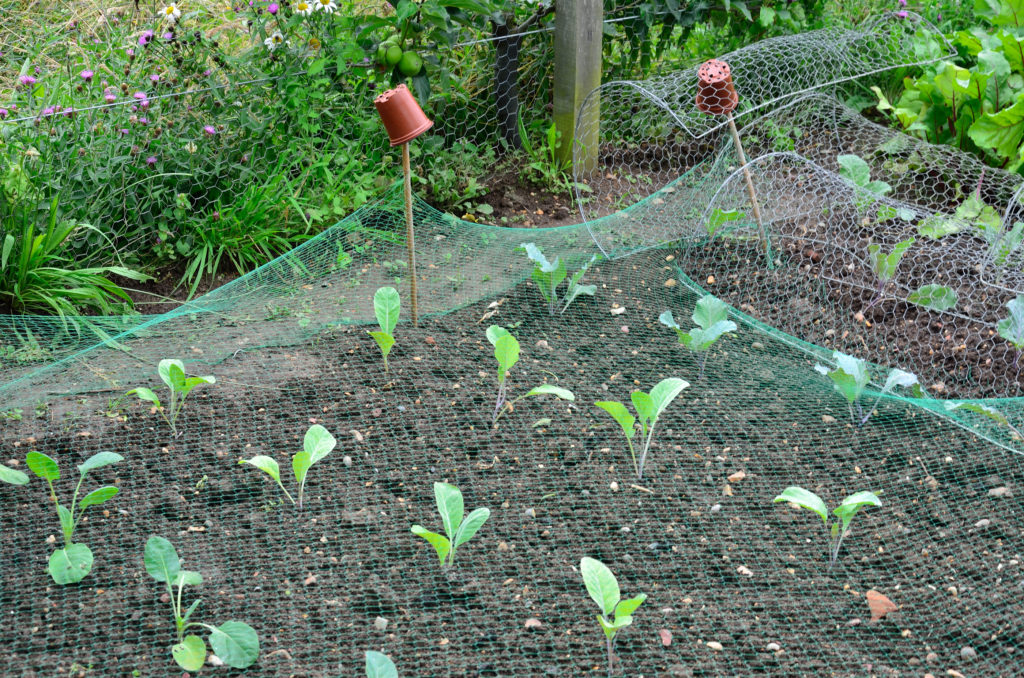
Cabbage pests
Remove cabbage worms and loopers by hand or use Bt. Dust plant bases with diatomaceous earth to prevent cabbage maggots. Use a cutworn collar around seedlings. Knock off aphids with a strong stream of water from the garden hose.
- Cabbage can be attacked by cutworms, cabbage loopers (caterpillars preceded by small yellow and white moths), imported cabbage worms, cabbage root maggots, slugs, and aphids.
- Place a protective collar around young plants to exclude cutworms.
- Handpick loopers and worms destroy them or spray with insecticidal soap or Bacillus thuringiensis.
- Cabbage maggots are the larvae of a fly. Plant radishes near cabbages to repel the flies. Place row covers over seedlings or plant through the garden fabric to keep flies from laying eggs in the soil. Mound diatomaceous earth or hot pepper around stems if maggots are in the soil. You can also mix wood ash into the soil near the roots.
- Cutworms and flea beetles will attack young plants.
- Aphids, cabbage loopers, cabbage maggots, harlequin bugs, imported cabbage worms, and leafminers attack cabbage.
- Flea beetles nibble holes in young leaves; attacks are worse in dry weather; keeping the soil moist will deter attacks.
- Mealy aphids are gray-green, waxy-looking aphids that suck juices from leaves; squash by hand or introduce ladybugs into the garden.
- Cabbage whitefly appears as clouds of small white insects; spray with insecticidal soap or Bacillus thuringiensis.
- Caterpillars are the larvae of various types of cabbage white butterflies and moths; these pests eat holes in leaves; insecticidal soap or Bacillus thuringiensis.
- Cabbage root fly: these adult flies lay eggs at the base of young brassica plants; hatched grubs tunnel into roots causing plants to collapse; exclude the flies with row covers; dig up and dispose of collapsed plants.
- Slugs and snails eat ragged holes in leaves; handpick and destroy these pests.
- Birds can attack young seedlings; protect seedlings with netting or row covers.
- To deter insect pests, plant thyme alongside cabbage in a row about 6 inches away. You can also spray plants with a mix of boiled onion and garlic.
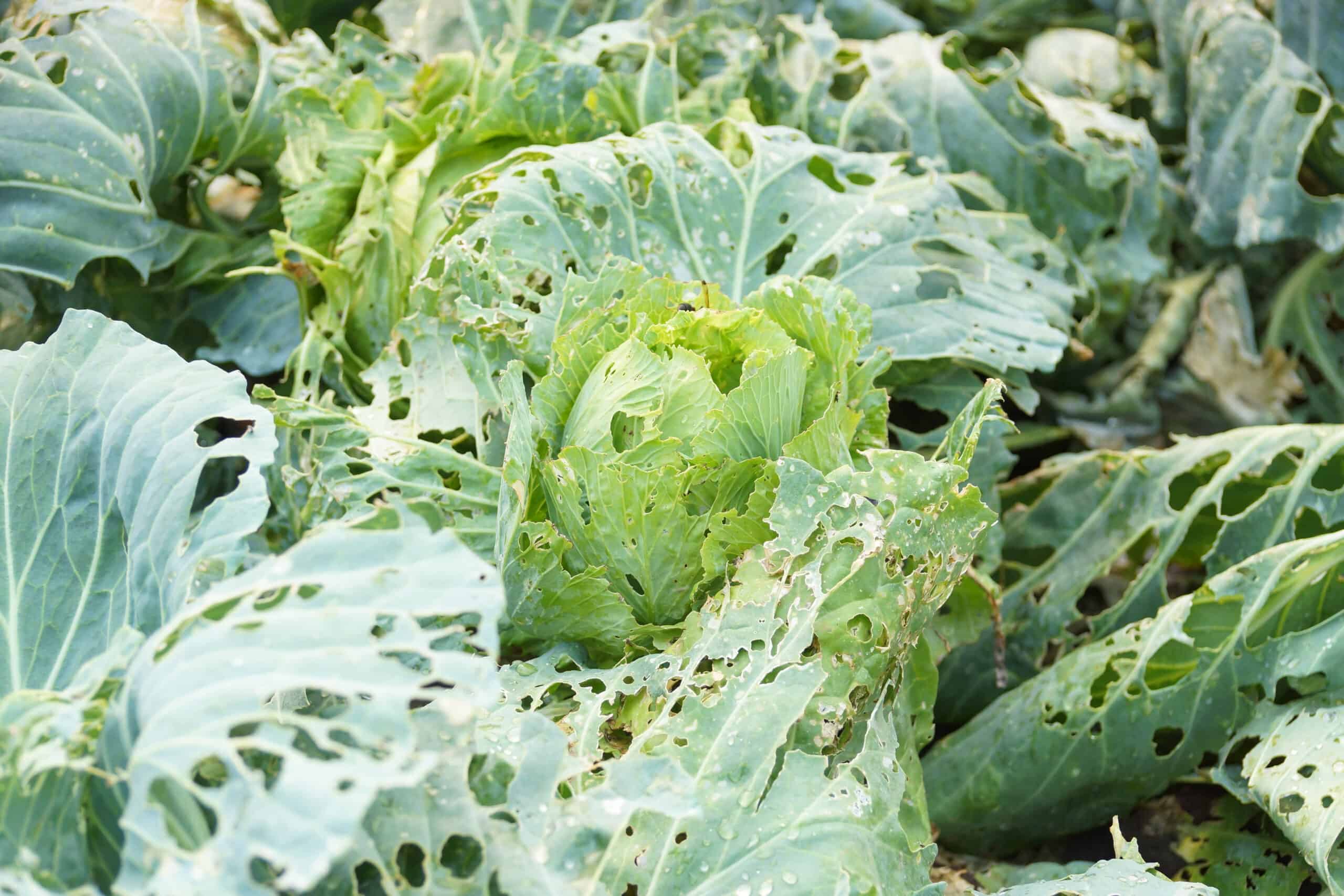
Cabbage diseases
Control clubroot and black rot through clean cultivation and crop rotation. Choose varieties resistant to yellows. Rotate cabbage-family plantings to avoid soil-borne diseases.
- Black rot, also called blackleg, clubroot, and yellows are fungal diseases that can attack cabbage
- Blackleg leaves yellow, V-shaped lesions on leaf edges. Plants with clubroot wilt and look stunted; there will be galls on the roots. Cabbage yellows are marked by the yellowing of lower leaves.
- Blackleg, bacterial blight: control diseases through crop rotation; collect and burn or dispose of in the trash can plant material after harvest.
- Clubroot is a soil-borne disease that results in root swelling followed by yellow leaves, the collapse of the plant, and death. Lift the entire plant and dispose of it in the trash or burn it; do not compost diseased plants
- Downy mildew and yellows can also afflict cabbage plants.
- To avoid fungal diseases plant disease-resistant varieties or seeds that have been hot water treated. Plant in well-drained soil. Water with compost tea.
- Remove and destroy diseased plants immediately.
- Rotate crops on a three-year cycle.
More tips: Cabbage Growing Problems: Troubleshooting.
Cracking cabbage heads
- Cabbage heads crack or split if the soil is allowed to go dry and then watered. The center and outer portions of the head develop at different speeds. The heads of early varieties often split in warm weather.
- If a cabbage head starts to crack or split, you can slow growth and the harvest time; give the plant a 180° twist at ground level to break off some of the roots; this will slow growth.
- If cracking continues, twist another 90° or harvest right away.
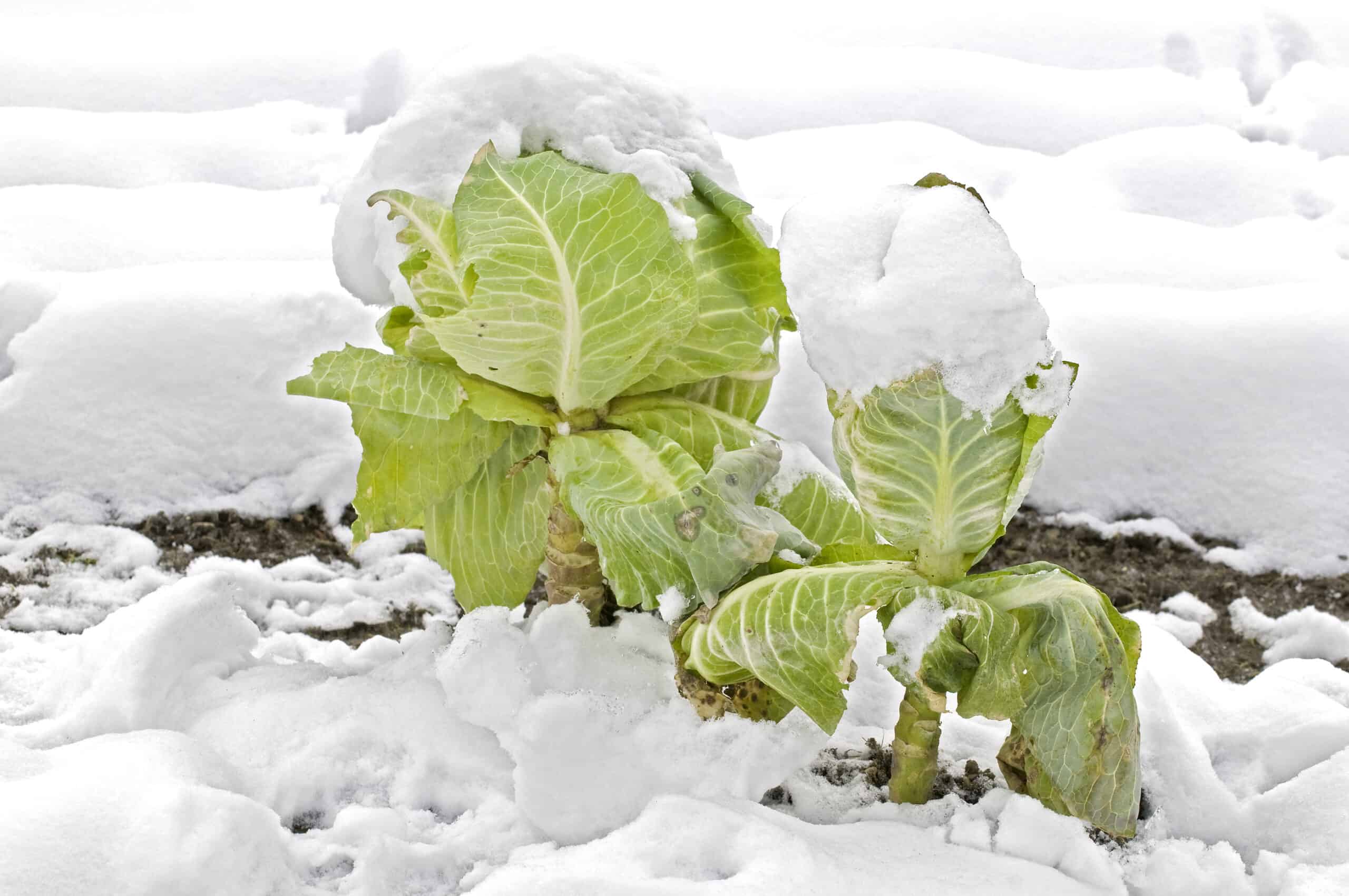
Harvesting cabbage
ut head with a sharp knife at ground level when the heads are tight and firm and 4 to 10 inches in diameter. Young, small cabbages are tastier. Cracked heads are past their peak.
- Cabbage will be ready for harvest at maturity in 80 to 180 days from seed depending on the variety or in 60 to 105 days from transplanting. However, cabbage can be harvested at any size. Baby heads are considered a delicacy. Cabbage does not have to form a head to be edible; you can eat loose leaves.
- Cut cabbage with a sharp knife when heads are firm and the base of the head is 4 to 10 inches (10-25cm) across.
- Splitting heads are a sign of irregular watering or cabbages past their prime.
- Harvest before the weather becomes too warm in spring. Cabbage will be sweet if harvested in cool weather.
- To harvest cabbage, cut the heads off the root system with a sharp knife. Discard the outer leaves and inspect the head for insects along the leaf stems if you plan to store heads.
- Cabbage for a fall crop or winter harvest can sit under a blanket of snow without harm. Simply pull away the spoiled outer leaves after harvest.
- If you want a second harvest from the same plant, cut the head just where the center of the stem meets the head leaving most of the stem and several leaves attached to the stem stump. Small new heads—about the size of a baseball–will grow from the stalks for later harvest.
- To hold maturing cabbage in the garden longer, pull or twist the heads to break off some of the feeder roots. This shock will keep cabbage from bolting or splitting for a period.
- To get a second harvest from early varieties, cut the initial head off leaving the stalks and roots in place. The stalks will resprout with little buds; remove all but one or two of the new sprouts and let them develop into small heads for a second harvest.
More tips: How to Harvest and Store Cabbage.
Storing and preserving cabbage
- Cabbage will keep in the refrigerator for 1 to 2 weeks or longer.
- Cabbage stores best when kept cool and most at 32° to 40°F. Late-season varieties store best.
- Under proper conditions, cabbage will keep for 5 to 6 months.
- In mild-winter regions, cabbage can be stored outdoors in the garden row or in pits or trenches. Place a thick protective mulch over cabbage stored outdoors.
- Late-season varieties with firm, solid heads should be picked just before the leave lose their bright color; these can be stored in a pit or cellar.
- Cabbage also can be dried and frozen or cured in brine as sauerkraut.
- Cabbage seeds can be sprouted.
Storing cabbage in a cabbage pit
- Cabbage can be harvested root and head in a pit or cellar.
- Dig a pit 2 feet deep and line it with straw; place the cabbages in the pit with roots up and cover with straw; then place a burlap sack over the heads and shovel a bit of soil over the sack. Lift the sack as you want to use heads.
Storing cabbage in a root cellar
- Place cabbage heads on a sheet in a root cellar; leaves several inches between each head.
Freezing cabbage
- Cabbage leaves can be shredded or cut into wedges and then blanched for 2 to 3 minutes; place blanched cabbage in freezer bags and then freeze.
Cabbage in the kitchen
- Cabbage tastes best when eaten soon after harvest.
- Cabbage is high in vitamins; it has good amounts of vitamins B1, B2, and A, plus calcium and vitamin C.
- Cabbage can be used in both raw and cooked forms. Uncooked cabbage is higher in nutrient value than cooked cabbage.
- Grated, raw cabbage is the main ingredient in cole slaw.
- Slivers of cabbage can be added to stir-fries, soups, or stews.
- A cabbage roll is a ground pork or beef mixed with sauteed caramelized onions and rice, stuffed in a cabbage leaf.
- Kimchi is a traditional Korean side dish of salted and fermented vegetables, such as cabbage and Korean radish.
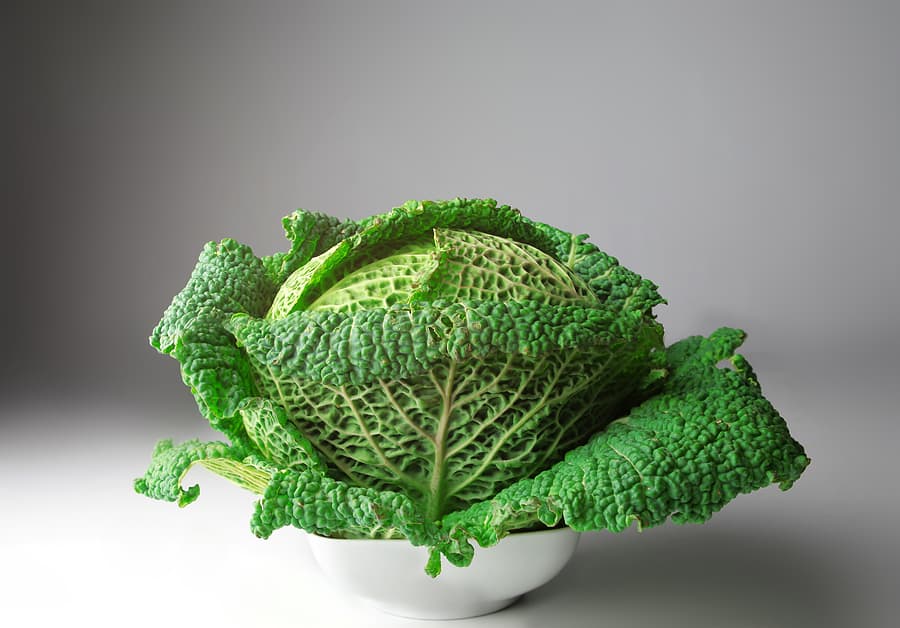
Varieties of cabbage to grow
There are hundreds of different varieties of cabbage. Choose a variety of cabbage that fits your growing time and needs.
- Green cabbage varieties: ‘Stovehead’ (60 days); ‘Jersey Wakefield’ (63 days); ‘Golden Acre’ (65 days); ‘Market Prize’ (73 days); ‘Green Boy’ (75 days); ‘Round Up’ (76 days); ‘Blue Ribbon’ (76 days); ‘Blue Boy’ (78 days); ‘Rio Verde’ (70 days); ‘Badger Ban Head’ (98 days); ‘Flat Dutch’ (105 days).
- Savoy cabbage varieties: ‘Savoy Ace’ (80 days); ‘Savoy King’ (85 days).
- Red cabbage varieties: ‘Red Acre’ (76 days); ‘Red Ball’ (70 days); ‘Red Ribbon’ (78 days); ‘Ruby Perfection’ (90 days).
See Garden Products Recommended by Harvest to Table
Cabbage varieties by harvest time
There are summer cabbage, autumn cabbage, and winter cabbage varieties. Early-season varieties come to harvest in late spring and summer; mid-season varieties come to harvest in late summer and autumn; late-season varieties come to harvest in autumn and winter.
- Early-season green cabbage: ‘Bergkabis, Charmant’ (52-65 days); ‘Derby Day’ (58-65 days), ‘Discovery’, ‘Dynamo’, ‘Early Jersey Wakefield’ (63-70 days); ‘Golden Acre’ (58-65 days); ‘Jingan’; ‘Julius’; ‘Mini Cole’; ‘Parel’; ‘Primo’; ‘Stonehead’ (50-70 days).
- Early-season red cabbage: ‘Barteolo’; ‘Bentley’; ‘Cardinal’; ‘Copenhagen Market Red’; ‘Lasso’; ‘Lennox’; ‘Mammoth Red Rock’ (90-95 days); ‘Red Acre’ (75-85 days); ‘Red Debut’; ‘Red Drumhead’ (95 days); ‘Red Rodan’ (140 days); ‘Red Rookie’ (78 days); ‘Rona Red’ (98 days), ‘Rougette’; ‘Ruby Perfection’ (83-85 days); ‘Solid Red’ (83 days).
- Midseason cabbage varieties: ‘Blue Vantage’ (76 days); ‘Copenhagen Market’ (72 days); ‘Fortuna’ (80-85 days).
- Late-season cabbage varieties: ‘Bruswick’; ‘Danish Ballhead’ (100-105); ‘Gloria’; ‘January King’; ‘Late Flat Dutch’ (100-110 days); ‘Savonarch’ (110 days); ‘Solid Blue’; ‘Wivoy’.
Choose the best cabbage variety for your region
Some cabbages, such as savoy types, can easily withstand frost and even snow. All cabbages are sweet after a morning frost. Hot weather will cause nearly all cabbages to flower and become tough and bitter.
Cabbage is slow-growing. Interplant cabbage with quick-growing leaf lettuce or quick-growing cole crops such as kohlrabi or turnips. Mature size can be controlled by spacing. Plant cabbages close together for small heads.
Cabbages can be harvested cut-and-come-again style (harvesting a few leaves as needed) or cut the mature head from the stalk, leaving the stem and perhaps outer leaves in place—these plants may grow new heads or produce several small new heads in a few weeks.
Almost all cabbage varieties keep at least a few weeks in the refrigerator.
Savoy cabbage
Savoy cabbage leaves (crinkled leaves) are more pliable than smooth cabbage. They are sweet and mild-flavored, easy to separate, and great to stuff and wrap. Try green winter-hardy ‘January King’ (160-200 days–plant in the fall for spring harvest) or purple ‘Alcosa’ (72 days).
Smooth-leafed cabbage
Smooth-leafed cabbages are compact and great for cole-slaw and sauerkraut; try ‘Early Jersey Wakefield’ (70 days), a small heirloom, ‘Gonzales’ (66 days), a round mini-cabbage, or bright-colored ‘Red Express’ (63 days).
Chinese or Napa cabbage
Chinese or napa cabbage is suited for salads and stir-fries; it is long, light in color, extra tender, and mild flavored. Try ‘Wong Bok’ (75 days), which is open-pollinated, or ‘Little Jade’ (60 days), a mini-hybrid.
Cabbage grows best in cool weather. Plant cabbages in late summer or early fall in mild-winter regions. Plant cabbages in spring being sure there are enough days to harvest before hot weather begins.
Cabbage recommended varieties
Early-season
- ‘Copenhagen Market’: ball-shaped 6-inch heads; good keeper; about 70 days to maturity.
- ‘Golden Acre’: 5-inch or larger heads on short stems; do not like hot weather; yellow-resistant; 60 days to maturity.
- ‘Modern Dwarf’: a small plant with 4-inch heads; sweet and tender, cracking resistant; 60 days to maturity.
- ‘Stonehead’: round 6-inch heads; compact growth; dense hard heads; yellows-resistant, heat-resistant; about 60 days to maturity.
Mid-season
- ‘Glory’ (Enkhuizen): round, blue-green heads to 7.5 inches; dense and solid; old Dutch variety; 75 days to maturity.’Glory (Enkhuizen): round, blue-green heads to 7.5 inches; dense and solid; old Dutch variety; 75 days to maturity.
- ‘Red Acre’: blood red round heads to 6 inches; yellow resistant.
- ‘Savoy Ace’: round heads can weigh up to 4 pounds; crinkly leaves; sweet and flavorful; All-America Selection; matures in about 80 days.’Savoy Ace: round heads can weigh up to 4 pounds; crinkly leaves; sweet and flavorful; All-America Selection; matures in about 80 days.
Late season
- ‘Danish Ballhead’: round, blue-green leaves to 8 inches; good keeper; somewhat heat tolerant; 110 days to maturity.
- ‘Drumhead’: large round, but flattened 9-inch heads; extra hard; very good keeper; 90 days to maturity.
- ‘Savoy King’: semi-flat head with crinkly leaves; flavorful; weighs 4 to 6 pounds; All-America Selection; 80 to 120 days to maturity.
- ‘Chieftain Savoy’: flat heads weigh up to 5 pounds; crinkly leaves; sweet flavor; All-America Selection; 80 to 90 days to maturity.
Round-head varieties
- ‘Danish Ballhead’ is large with a solid head; 3 to 5 pounds; late variety; 105 days to maturity.’Danish Ballhead is large with a solid head; 3 to 5 pounds; late variety; 105 days to maturity.
Flat-head varieties
- ‘Late Dutch Flat’ is a late-season variety with bluish-green leaves; matures in 110 days.
Conical-head varieties
- ‘Early-Jersey Wakefield’ is an extra-early variety with dark green leaves; grows to 2 to 3 pounds; 65 days to maturity.’Early-Jersey Wakefield is an extra-early variety with dark green leaves; grows to 2 to 3 pounds; 65 days to maturity.
Red-leaf varieties
- ‘Red Acre’ has a dark red head, 6 to 7 inches across; grows to 4 or 5 pounds; early to mid-season variety; 86 days of maturity.
- ‘Ruby Ball’ is ball-shaped; grows to 5 pounds; All-Aerian Selection; early variety; 70 days to maturity. ‘Ruby Ball’ is compact and solid and probably the most flavorful red cabbage.’Ruby Ball is ball-shaped; grows to 5 pounds; All-Aerian Selection; early variety; 70 days to maturity. Ruby Ball’ is compact and solid and probably the most flavorful red cabbage.
- ‘Mammoth Red Rock’ is large and stores well.
- ‘Scarlet O’Hara’ is a Japanese hybrid.
- ‘Ruby Perfection’ red cabbage is noted for its beauty.
- ‘Lasso’ and ‘Red Acre’ are two open-pollinated red cabbages.
Savoy varieties
Savoy cabbage is named for the region where it is believed to have originated: the Savoy which straddles the Alpine regions of Italy and France. Savoy cabbage is also called curly cabbage.
- ‘Chieftan Savoy’ has blue-green leaves; a flattened head; grows to 4 to 5 pounds; All-America Selection; 85 days to maturity.
- ‘Savoy King’, ‘Savoy Ace’, and ‘Quintal D’Alsace’ are the best know savoy cabbage varieties.
- ‘Spivoy’ is unusual; it has a pointed head. It is a great selection for the home garden because it can be closely planted and holds well after maturing so that the harvest can be extended over a longer period.
More about cabbage varieties: Choosing Cabbage Varieties to Grow.
Cabbage pollination and seed saving
- Cabbage is an insect-pollinated biennial. Differing cabbage varieties can be cross-pollinated unless they are planted 100 yards apart
- To save cabbage seeds, cut stalks when seed pods are dry and brittle. Dry pods on trays and separate the seeds.
Cabbage frequently asked questions
Q: Why do my cabbage heads split?
A: Cabbage heads split when they grow too fast and take up too much water. You can reduce the damage by breaking some of the plant’s roots with a quarter-turn twist of the head.
Q: Why are my cabbage heads small? What causes smaller heads?
A: Small or poor-quality cabbage heads can be the result of over-warm weather or of nutrient deficiency. Plant earlier and check soil fertility before planting.
Q: What are the small yellow and white moths or white butterflies flying around my cabbage plants?
A: These are the adult form of the cabbage looper and imported cabbage worm. When these moths fly about cabbage they are also landing and laying eggs on the leaves. When the eggs hatch, the caterpillars begin eating the leaves.
Q: One year a few of my cabbage plants became diseased, I’ve had problems with cabbage, broccoli, and cauliflower ever since. What can I do?
A: The plants are likely infected with black leg or black rot disease, both of these diseases attack cabbage family plants. These diseases can survive in the soil for two or three years. To gain control, do not grow cabbage family plants in the affected areas of the garden for three years. Then buy seeds that have been hot-watered treated.
About cabbage
- Cabbage is a hardy biennial grown as a cool-weather annual that can tolerate frost but not heat.
- Cabbage grows an enlarged terminal bud of broad, overlapping leaves called a “head” atop a short, stubby stem. Heads can be round, flat, or pointed. Leaves can be smooth or crinkled in shades of green or reddish-purple and the head can be round, flat, or pointed.
- Cabbage varieties can come to harvest early in the season, mid-season, or late season.
- Exposed to severe frost, too little moisture, or too much heat cabbage will not form a head but instead bolt and go directly to seed.
- Cabbage heads–which are mostly water–will expand and split if the weather grows too warm as the heads take up water more quickly than the moisture can transpire from tightly wrapped leaves.
- Botanical name: Brassica oleracea capitata (brassicas are also known as cole crops)
- Origin: Southern Europe
Cabbage articles at Harvest to Table:
How to Harvest and Store Cabbage
Cabbage Growing Problems Troubleshooting
Imported Cabbage Worm Organic Pest Control
Cabbage Looper Organic Pest Control
Seven Ways to Cook and Serve Cabbage
Sliced Cabbage Salad Simply Made
Corn Beef and Cabbage Slow Cooked
How to Make Cabbage Soup with No Recipe
Savory Raddish-Cabbage Coleslaw
More how to grow articles:
Learn how to plant, grow, and harvest your favorite vegetables. Click below for all you need to know.
- Artichoke
- Arugula
- Asparagus
- Beans, Snap
- Beets
- Broad Beans
- Broccoli
- Brussels Sprouts
- Cabbage
- Cantaloupe — Melons
- Cardoon
- Carrots
- Cauliflower
- Celeriac
- Celery
- Chard
- Chayote Squash
- Chickpeas
- Chicory
- Chinese Cabbage
- Collards
- Corn Salad
- Corn, Sweet
- Cresses
- Cucumbers
- Eggplant
- Endive and Escarole
- Fava Beans
- Florence Fennel
- Garbanzo Beans
- Garlic
- Horseradish
- Jerusalem Artichoke
- Kale
- Kohlrabi
- Leeks
- Lettuce
- Lima Beans
- Melons
- Mizuna
- Mustard Greens
- New Zealand Spinach
- Okra
- Onions
- Parsnips
- Peanuts
- Peas
- Peppers
- Potatoes
- Pumpkins
- Radicchio
- Radishes
- Rhubarb
- Rutabaga
- Salsify
- Shallots
- Sorrel
- Southern Peas
- Soybeans
- Spinach
- Squash, Summer
- Squash, Winter
- Sunchokes
- Sweet Potato
- Swiss Chard
- Taro
- Tomatillo
- Tomatoes
- Turnips
- Watermelon
- Zucchini
Grow 80 vegetables and herbs: KITCHEN GARDEN GROWERS’ GUIDE
See Garden Products Recommended by Harvest to Table


